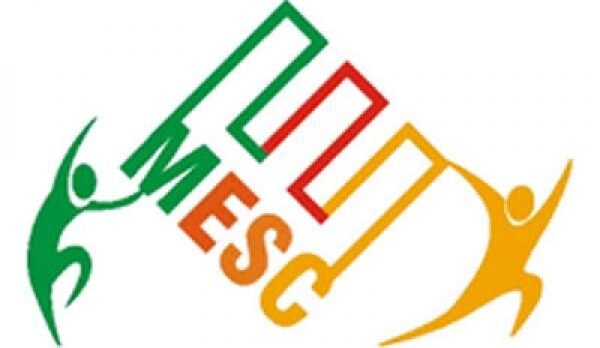Diploma in Guitar Course
April 27, 2024 2024-06-15 13:28Diploma in Guitar Course
Diploma in Guitar Course
UGC Approved Courses
Top Instructors
In Campus Placements
We take pride in being pioneers in India, providing a Bachelor's in Music Production & Performance with a minor in Entrepreneurship
Placement Record
Average LPA
Alumini Network
We are well aware that choosing what to study at university is one of the most important decisions you have to make in life.
Diploma in Guitar Course
Foundations of Guitar Playing
- Introduction to the guitar
- Basic chords and strumming patterns
- Fingerpicking techniques
- Reading guitar tablature and notation
Music Theory for Guitarists
- Understanding scales and modes
- Harmonizing scales and chord construction
- Intervals and their application
- Rhythmic concepts and time signatures
Techniques and Exercises
- Development of dexterity and coordination
- Alternate picking and economy picking
- Hammer-ons, pull-offs, and slides
- Barre chords and advanced chord voicings
Repertoire Development
- Learning popular songs across genres (rock, blues, jazz, etc.)
- Analysis of song structures and arrangements
- Soloing techniques and improvisation
- Ear training and transcribing melodies and solos
Ensemble Performance
- Collaborative playing with other musicians
- Rehearsals and performances in small ensembles
- Understanding band dynamics and communication
- Developing stage presence and audience interaction skills
Recording and Production Techniques
- Introduction to recording equipment and software
- Basic audio engineering concepts
- Mic placement and signal processing for guitar recording
- Editing, mixing, and mastering guitar tracks
Career Development and Industry Insights
- Overview of career paths in the music industry
- Networking and self-promotion strategies
- Understanding music business fundamentals (copyright, royalties, contracts)
- Guest lectures and workshops with industry professionals
Final Project and Showcase
- Individual or group project demonstrating skills learned throughout the program
- Preparation and execution of a final performance or recording session
- Presentation of portfolio to peers and instructors
This course module provides a structured framework for students to develop their guitar skills, theoretical knowledge, and practical experience over the course of one year, preparing them for a successful career in music.
Upon completing the Diploma in Guitar course, graduates have a myriad of exciting career opportunities available to them in the dynamic world of music. Some potential career paths include:
Professional Guitarist: Graduates can pursue careers as professional guitarists, performing live in bands, as solo artists, or as session musicians in recording studios. They can specialize in various genres such as rock, blues, jazz, pop, country, or classical music.
Music Educator: Graduates may choose to become guitar instructors, teaching private lessons, group classes, or workshops. They can work in music schools, community centers, or independently, sharing their knowledge and passion for the guitar with students of all ages and skill levels.
Songwriter/Composer: Graduates with a knack for songwriting and composition can pursue careers as songwriters, composing original music for themselves or other artists. They may also work as composers for film, television, video games, or advertising, creating music to accompany visual media.
Session Musician/Studio Guitarist: Many recording studios and music producers seek skilled guitarists to record parts for songs, albums, or soundtracks. Graduates can work as session musicians, lending their talents to studio recordings, providing guitar tracks for artists and producers.
Music Producer/Arranger: Graduates with a strong understanding of music theory and production techniques may pursue careers as music producers or arrangers. They can work with artists to shape their sound, arrange songs, oversee recording sessions, and mix and master tracks for release.
Guitar Technician/Luthier: Graduates interested in the technical aspects of guitar playing may pursue careers as guitar technicians or luthiers. They can work in instrument repair shops, music stores, or independently, repairing and maintaining guitars or even building custom instruments.
Music Entrepreneur: Graduates with an entrepreneurial spirit can start their own music-related businesses, such as music schools, recording studios, instrument shops, or online platforms for selling music-related products or services.
Music Therapy Practitioner: Some graduates may choose to specialize in music therapy, using their guitar skills to help individuals improve their physical, emotional, and cognitive well-being through music. Music therapists work in hospitals, schools, rehabilitation centers, and other settings, using music as a therapeutic tool.
These are just a few examples of the diverse career paths available to graduates of the Diploma in Guitar course. With their versatile skills, creativity, and passion for music, graduates can carve out successful and fulfilling careers in various sectors of the music industry.
32,000 for 1 Year Diploma in Guitar Course
Admission Process
Online Application
Admission Test
Online Assessment
Personal Interview
Final Committee Decision
Our Affiliations





Why we are known for the Best Music College in India?

Pranay Kumawat
Music Producer
Ishita Parakh
Singer- Songwriter
Heena Gupta
SingerFAQ
What is the Diploma in Guitar Course?
The Diploma in Guitar Course is a comprehensive program designed to provide students with a thorough understanding of the guitar and its role in contemporary music, covering a wide range of topics from fundamental techniques to advanced performance skills.
Who is eligible to enroll in the Diploma in Guitar Course?
The Diploma in Guitar Course is open to individuals of all skill levels, from beginners to experienced players, who have a passion for the guitar and a desire to further their musical education.
What does the curriculum of the Diploma in Guitar Course cover?
The curriculum encompasses various aspects of guitar playing, including chord progressions, scales, improvisation, music theory, repertoire development, and ensemble performance, offering a well-rounded education in guitar performance and musicianship.
How long does the Diploma in Guitar Course last?
The duration of the Diploma in Guitar Course typically spans [insert duration here], during which students engage in intensive training and practical experience to develop their guitar skills and artistic expression.
What are the career opportunities available after completing the Diploma in Guitar Course?
Graduates of the Diploma in Guitar Course have a wide range of career options available to them, including performing as professional guitarists, songwriters, studio musicians, music educators, and more, with opportunities in various sectors of the music industry.
Explore All Courses
Choose from more than 20+ options in music & technology.
